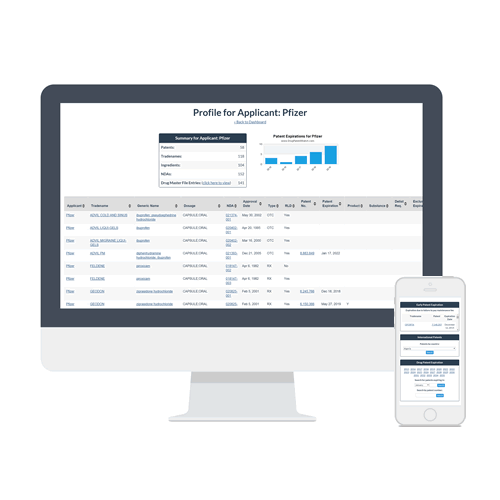“Patents reward drugmakers for their inventions and, effectively, the large sums of money they invest in research and development. The legal monopoly that patents provide keeps generic copies at bay for many years, even decades, and allows pharmaceutical companies to set higher prices than they otherwise could.” — BioPharma Dive[2].
Table of Contents
Introduction

Understanding the duration of drug patents is crucial for both pharmaceutical companies and consumers. Drug patents protect the intellectual property of new medications, allowing companies to recoup their investments in research and development. This article delves into the intricacies of drug patent durations, extensions, and the implications for the pharmaceutical industry and consumers.
What is a Drug Patent?
Definition and Purpose
A drug patent is a legal protection granted to pharmaceutical companies, giving them exclusive rights to manufacture, use, and sell a new drug. This exclusivity helps companies recover the substantial costs associated with drug development.
Types of Drug Patents
- Composition of Matter Patents: These cover the chemical composition of the drug.
- Method of Use Patents: These protect the specific use of a drug.
- Formulation Patents: These cover the specific formulation or dosage of the drug.
Standard Duration of Drug Patents
Basic Patent Term
In the United States, the standard term for a new drug patent is 20 years from the date of filing[1][5]. However, this period can be significantly reduced by the time the drug reaches the market due to the lengthy approval process.
Factors Affecting Patent Duration
Several factors can influence the effective duration of a drug patent:
- Regulatory Delays: Time taken for FDA approval can eat into the patent term.
- Patent Challenges: Legal disputes over patent validity can shorten the effective patent life.
The Approval Process and Its Impact
FDA Approval Timeline
Gaining FDA approval is a rigorous process that can take up to 8 years, significantly reducing the effective market life of a drug patent[5].
Impact on Market Exclusivity
Due to the lengthy approval process, pharmaceutical companies often have less than half of the 20-year patent term to exclusively market their drugs[4].
Patent Extensions
Patent Term Extensions (PTE)
Patent term extensions can add up to 5 years to a patent’s life to compensate for time lost during the FDA approval process. The median extension granted is approximately 2.3 years[3].
Types of Exclusivity
- Orphan Drug Exclusivity: 7 years
- New Chemical Entity Exclusivity: 5 years
- Pediatric Exclusivity: 6 months added to existing patents/exclusivity
- New Clinical Investigation Exclusivity: 3 years[1]
Strategies to Extend Patent Life
Creating Patent Thickets
Pharmaceutical companies often create “patent thickets” by filing multiple patents on various aspects of a drug, such as its formulation or delivery method, to extend market exclusivity[2].
Reformulation and New Uses
Companies may develop new formulations or discover new uses for existing drugs, which can lead to additional patents and extended exclusivity periods[5].
The Patent Cliff
Definition and Implications
The “patent cliff” refers to the period when numerous drug patents expire, leading to a significant drop in revenue for pharmaceutical companies as generic competitors enter the market[4].
Recent Examples
Several blockbuster drugs have recently faced the patent cliff, including Lipitor and Advair, leading to substantial revenue losses for their manufacturers[4].
The Role of Generic Drugs
Introduction of Generics
Once a patent expires, generic drug manufacturers can produce and sell cheaper versions of the drug, leading to a significant drop in prices[5].
Impact on Drug Prices
The introduction of generics typically reduces the price of a drug by about 80%, making medications more affordable for consumers[5].
Legal and Regulatory Challenges
Patent Litigation
Pharmaceutical companies often engage in legal battles to protect their patents and delay the entry of generics. These lawsuits can result in temporary freezes on generic approvals[5].
Regulatory Hurdles
Generic manufacturers must navigate complex regulatory requirements to bring their products to market, further delaying competition[5].
Industry Expert Insights
Quotes from Experts
“The legal monopoly that patents provide keeps generic copies at bay for many years, even decades, and allows pharmaceutical companies to set higher prices than they otherwise could.” — BioPharma Dive[2].
Case Studies
- Enbrel: This drug for inflammatory diseases will enjoy over 30 years of market exclusivity due to multiple patents and extensions[2].
- Jardiance: Received a patent term extension of 3.18 years, highlighting the impact of PTE on market exclusivity[3].
Conclusion
Understanding the duration and intricacies of drug patents is essential for navigating the pharmaceutical landscape. While patents provide necessary protection and incentives for innovation, they also pose challenges for market competition and drug pricing. As patents expire and generics enter the market, the balance between innovation and accessibility continues to evolve.
FAQs
1. What is the standard duration of a drug patent?
The standard duration of a drug patent in the United States is 20 years from the date of filing[1].
2. Can drug patents be extended?
Yes, drug patents can be extended through mechanisms like Patent Term Extensions (PTE) and various forms of exclusivity[3].
3. What is the “patent cliff”?
The “patent cliff” refers to the period when multiple drug patents expire, leading to increased generic competition and significant revenue losses for pharmaceutical companies[4].
4. How do generic drugs impact drug prices?
The introduction of generic drugs typically reduces drug prices by about 80%, making medications more affordable for consumers[5].
5. What strategies do pharmaceutical companies use to extend patent life?
Pharmaceutical companies use strategies like creating patent thickets and developing new formulations or uses for existing drugs to extend patent life[2][5].


